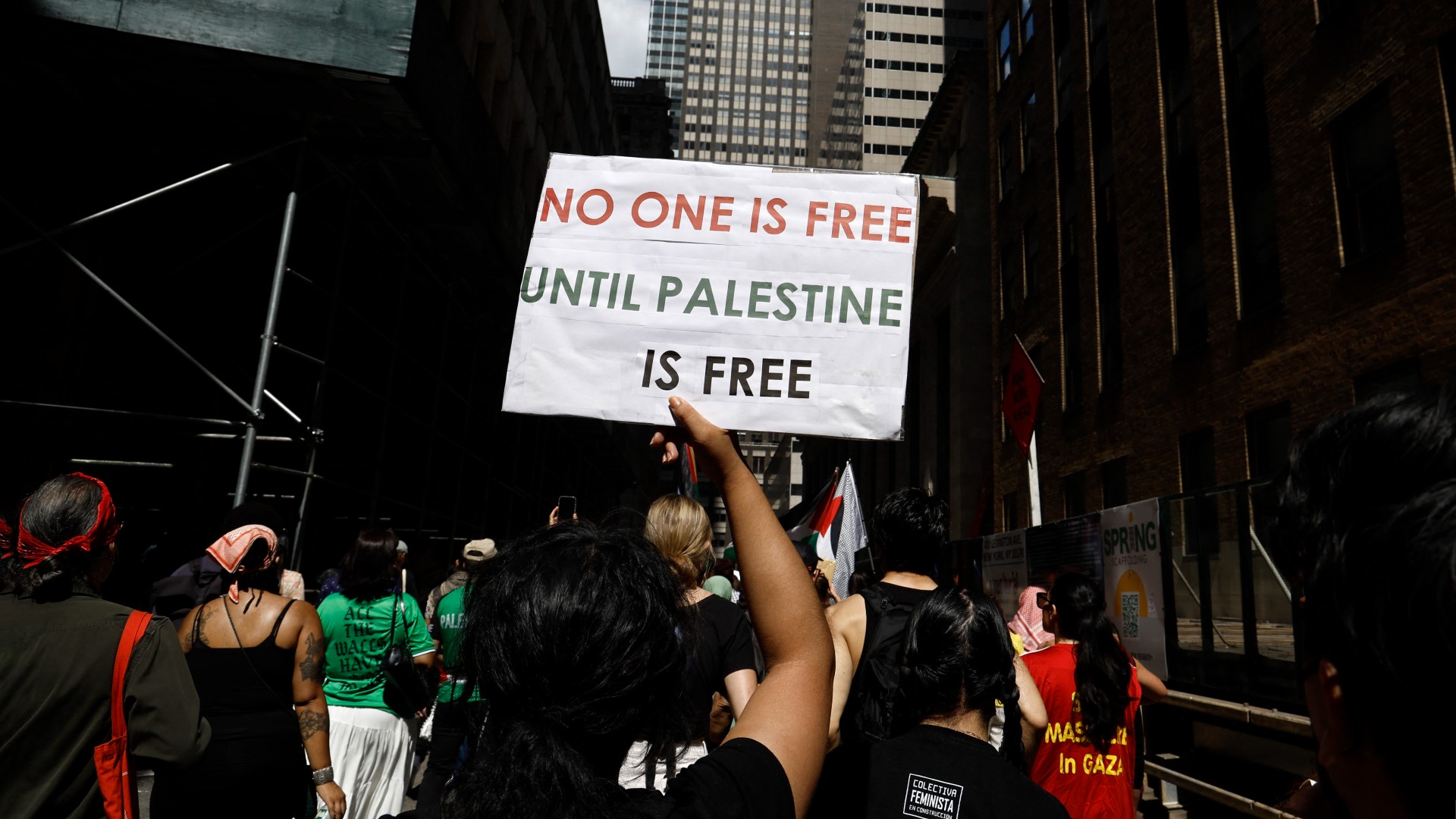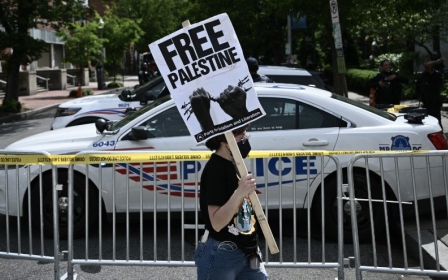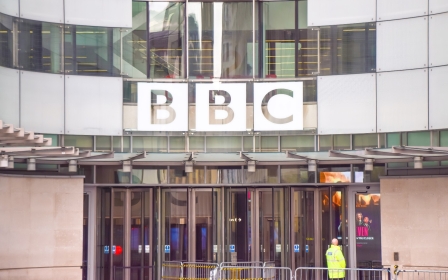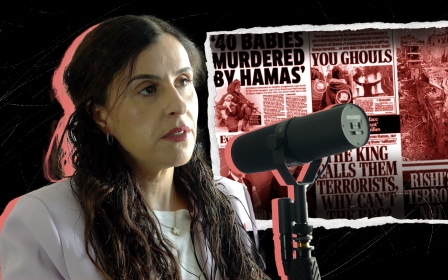Corridors of Power: BBC series calls for more US global meddling
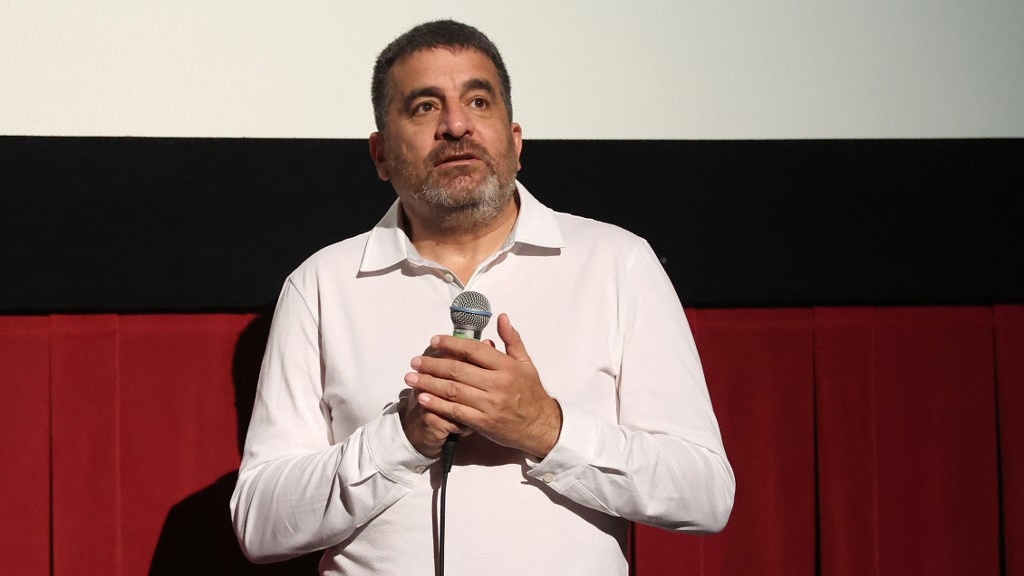
The BBC recently aired an eight-part documentary series dedicated to examining Washington’s role in the world.
Directed by acclaimed Israeli filmmaker Dror Moreh, Corridors of Power: Should America Police the World? features scores of interviews conducted over several years with former senior US officials, including Hillary Clinton and Condoleezza Rice. Several are now dead, including Madeleine Albright, Colin Powell and Henry Kissinger.
The series doesn’t leave its titular question unanswered: on the contrary, Moreh, through the voice of celebrity narrator Meryl Streep, makes an impassioned case for the US to step up and police the world.
The docuseries excoriates US foreign policy since the end of the Cold War, arguing that Washington has failed to stop genocide and atrocities when it should have intervened, while also executing bungled operations followed by chaotic withdrawals.
The solution to this sorry record? More intervention, Moreh proposes.
New MEE newsletter: Jerusalem Dispatch
Sign up to get the latest insights and analysis on Israel-Palestine, alongside Turkey Unpacked and other MEE newsletters
This is a case made across eight episodes that examine conflicts in Iraq, Bosnia, Rwanda, Kosovo, Sudan, Libya and Syria, the latter of which has two shows devoted to it.
The 2001 invasion of Afghanistan receives little attention, while the 2003 invasion of Iraq is addressed only briefly during the episode on Sudan. US military activities and interventions in Somalia, Pakistan and other countries are largely ignored.
The US-backed Gulf war in Yemen, which has killed hundreds of thousands of people over the past decade, is also perplexingly absent from the narrative.
But most strikingly, considering the timing of the series - released in August - and its argument that the US should police the world, there seems to be a crucial missing episode: Gaza.
Glaring omission
Israel’s ongoing assault on the besieged Gaza Strip, which has killed at least 40,000 Palestinians, is glaringly absent from the series.
The US has a serious and decisive role in this war, primarily through arming Israel. Israel is heavily reliant on the US for both military support and diplomatic cover. Were the US to withdraw that support, the bombardment of Gaza would cease - and were the US to apply sanctions, Israel could be pressured into ending its occupation of the Palestinian territories.
Follow Middle East Eye's live coverage of the Israel-Palestine war
The series’ concluding vignette mentions Ukraine and Xinjiang, two situations in which it is suggested that Washington needs to do more to combat criminal activities by Russia and China.
Narrator Streep also declares that “democracy is in decline” and “authoritarian regimes are on the rise” (accompanied by images of Turkish President Recep Tayyip Erdogan and Hungarian Prime Minister Viktor Orban).
There's a strong argument to be made that the US itself poses the greatest threat to the rules-based order
She goes on to say that the decades since the fall of the Berlin Wall have shown that “evil can appear anywhere, that the human longing for domination and savagery will never disappear”.
The impassioned voiceover continues: “This world will not follow a rules-based international order by itself. Someone must lead and rally the democracies. That means a strong nation that can show the discipline to follow those rules itself and can summon its power to persuade others to help enforce them. Only America can do that.”
Bear in mind that the Biden administration has not just thrown scorn on the International Court of Justice’s judgement that Israel is plausibly committing genocide in Gaza. It even refuses to recognise the International Criminal Court (ICC)’s jurisdiction over Israel.
Last December, President Joe Biden acknowledged that Israel was engaged in “indiscriminate bombing” in Gaza, but he has continued to arm the state.
There’s a strong argument to be made that the US itself poses the greatest threat to the rules-based order.
'Greatest failure'
In this context, aired 10 months into Israel’s war on Gaza, the BBC docuseries feels anachronistic and awkward - to put it mildly.
It certainly does not portray American foreign policy in a positive light. After seeing no need to intervene to stop Saddam Hussein from using chemical weapons against the Kurds, the series notes, the US intervened only when Iraq invaded oil-rich Kuwait in the 1990s. The implication is that the Americans behaved cynically, rather than to protect the rules-based order.
Amid the genocide in Bosnia that same decade, the series shows, the US did too little, too late. It was the same story with the Rwandan genocide, in which 800,000 people died. Former US President Bill Clinton is shown calling the US’s lack of action “the greatest failure of my life”.
Then, during the Sudanese government’s ethnic cleaning campaign in 2003, the fifth episode argues, the US was too bogged down in Iraq and Afghanistan to take action.
Again in Syria, the US is accused of failing to properly take the fight to President Bashar al-Assad after he massacred his own people with chemical weapons.
It’s a different story in Iraq, Afghanistan and Libya, where director Moreh asserts that “America’s military swept away dictatorships, and left chaos and ruin in their place”. The conclusion to be drawn from these examples is that the US “showed it had the power to destroy, but not the patience, and the will, to rebuild”.
In Iraq, for example, the US invaded on the false pretence that Saddam had weapons of mass destruction. The dictator was swiftly toppled, but officials in the Bush administration assumed that “Iraq would remain a functioning state”.
This was not to be the case, and Moreh’s assessment is brutal: “America broke Iraq, and proved utterly unprepared for what came next.”
Voices absent
Washington has routinely failed to base its foreign policy on consistent moral values, either failing to intervene or intervening in a haphazard and insufficient way, the BBC docuseries demonstrates.
Moreh’s conclusion is that the US must be more interventionist. But voices from non-Americans are conspicuously absent from the docuseries. Iraqis, Afghans, Yemenis, Syrians - do they believe the US should intervene more and seek to police the world? Do they think this is the solution? Do Palestinians? We never find out.
Instead, the seven-and-a-half-hour series is packed full of American officials agonising, ruminating and philosophising, often in a grandiose manner, about the US and its role in the world.
This is very obviously the perspective Moreh wants to explore, and the absence of Gaza from the production makes it appear nothing short of absurd.
In Gaza, the US is intervening - by arming and backing a state accused by much of the international community of committing war crimes. Here, American intervention is consequential, sustained and in flagrant opposition to the United Nations.
Gaza proves the grand narrative of Moreh’s BBC docuseries to be fundamentally flawed. This is why its omission is so glaring.
It’s true that the series was planned and produced, inconveniently, before the Hamas-led attack of 7 October last year and Israel’s ensuing war on Gaza. But US backing for Israel as it breaks international law is a long-standing and significant phenomenon. Why was it ignored?
Directorial perspective
Moreh, who is Israeli, has a long record of discussing the conflict between Israel and Palestine.
“What amazed me on October 7 was the intensity of the hatred toward Israel,” he told Haaretz earlier this year. "From the beginning, I kept asking myself what leads people to such hatred."
“Don’t forget that it’s 2024. The people who invaded Israel in 2023 were one or two years old during Israel’s disengagement from Gaza,” he added. “They are between 18 and 21 years old [now], and all they know about Israelis are the military operations in Gaza and what they hear in mosques, from their parents and their environment. And these are the results.”
The US is certainly the world's most powerful nation, but why does that mean it should police the world?
Note that according to the UN and under international law, Israel has been the occupying power in Gaza even after it removed its settlements from the enclave. Moreh sidesteps this with his talk of “disengagement”.
He also seems to blame 7 October, at least partially, on the radicalisation of young Palestinians by older Palestinians, while also placing some responsibility on the Israeli government by referencing “military operations” in Gaza.
The Haaretz interview was a significantly toned-down version of sentiments he has previously expressed.
In 2012, Moreh released a documentary called The Gatekeepers, featuring interviews with six former heads of the Shin Bet, Israel’s intelligence and security service. It argued that the Israeli occupation was the biggest threat to the country, and the source of Palestinian grievances.
The far right, he said in an interview about the film, “are the most danger to Israel. If they think that to maintain the occupation is pro-Israel, then they are gravely mistaken … It is devastating us from within.”
Importantly, Moreh argued then that a resolution could only come from outside pressure on Israel via the US and EU.
He reiterated this view in 2021 while speaking about The Human Factor, a documentary in which he examines the Israel-Palestine conflict through the eyes of American officials.
“I think America has much more leverage over Israel than it uses,” he said. “If America decides that bringing peace between Israel and its neighbours is a core American interest, the way that America approaches it should be different when you’re dealing with a prime minister like [Benjamin] Netanyahu, who’s not for peace.”
Dramatic reversal
Moreh’s brand of interventionism seems to suggest that the US must use its power and influence to pressure Netanyahu to pursue peace. This would mean a dramatic reversal of the American approach so far, which has been to provide cover and backing for Israel even in its breaches of international law.
It would also entail a significant lurch away from Washington’s general approach to questions of law and accountability: like Israel, it has not ratified the Rome Statute, placing it outside the ICC’s jurisdiction.
The American Servicemembers’ Protection Act, meanwhile, shields American military personnel from criminal prosecution. The US has even sanctioned ICC officials for investigating alleged American war crimes in Afghanistan.
This is all startlingly absent from the BBC’s docuseries. The US is certainly the world’s most powerful nation, but why does that mean it should police the world?
Recall the commentary that concludes the final episode: “This world will not follow a rules-based international order by itself.”
But many would say it’s the US that will not follow a rules-based international order. Perhaps next time, the BBC should commission a docuseries on that.
The views expressed in this article belong to the author and do not necessarily reflect the editorial policy of Middle East Eye.
Middle East Eye delivers independent and unrivalled coverage and analysis of the Middle East, North Africa and beyond. To learn more about republishing this content and the associated fees, please fill out this form. More about MEE can be found here.


